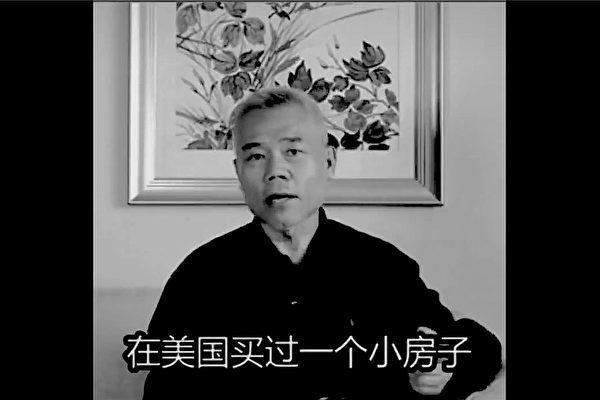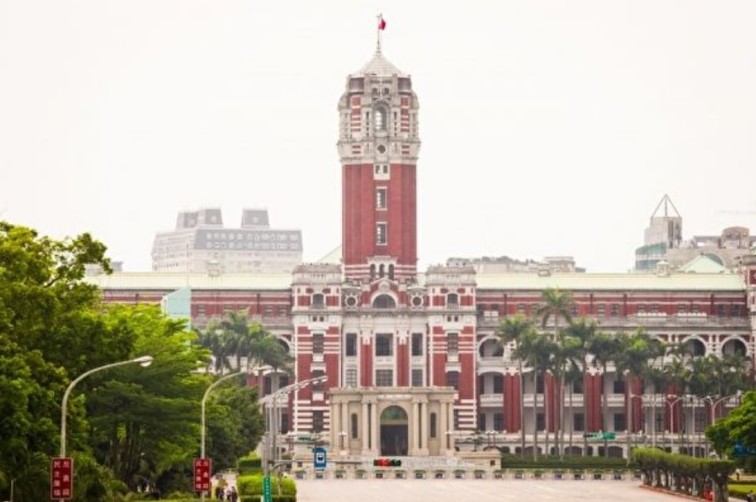Illustration of mainland spouses in Taiwan. (AI-generated image)
[People News] In March 2025, the Taiwan authorities expelled three mainland Chinese spouses (referred to as mainland spouses) on the grounds of 'endangering national security and social stability.' They were found to be promoting 'military unification with Taiwan' on mainland social media platforms such as Douyin and YouTube, which violated the 'Cross-Strait Relations Act.' Among those expelled, the most notable was internet celebrity Liu Zhenya (online name 'Ya Ya'), who has been advocating for the Chinese Communist Party's military unification under the title 'Ya Ya in Taiwan.' She named her daughter 'Little Donggui' and allowed her to express a desire to 'return to the mainland for school' in her videos. The Immigration Agency of Taiwan's Ministry of the Interior revoked her residency permit based on family ties, ordering her to leave by March 25 and prohibiting her from applying for residency again for five years. Initially, Ya Ya refused to leave, claiming that the expulsion put her 'facing an abyss of no return' and expressing her unwillingness to be separated from her children. This statement provoked strong reactions from netizens on both sides of the strait, with mainland netizens questioning 'where is the abyss in the mainland,' while Taiwanese netizens sarcastically suggested she should 'take her children back to the mainland to avoid separation.' The incident sparked intense debates in public opinion across the strait, highlighting the conflict between the boundaries of speech for mainland spouses and Taiwan's security considerations.
Taiwan's decision to expel three mainland spouses, particularly Ya Ya, for promoting military unification online, is a necessary measure to protect national security and social stability. This action not only addresses the security concerns of the Taiwanese public but also reveals the CCP's strategy of using mainland spouses for united front propaganda, the deeper reasons and implications of which warrant further analysis.
Firstly, the need to expel mainland spouses stems from the direct threat their statements pose to Taiwan's security. Individuals like Ya Ya and other mainland spouses take advantage of Taiwan's free environment to openly promote unification by force on mainland social media platforms (such as Douyin), trying to attract followers and influence public opinion. In Ya Ya's videos, her daughter 'Xiao Danggui' expresses a desire to 'return to the mainland for school,' which further involves underage children in political propaganda, attempting to create the false impression that 'Taiwanese people identify with the mainland.' These statements not only challenge Taiwan's sovereignty but could also incite hostility across the strait, posing a threat to social stability. Taiwan's 'Cross-Strait Relations Act' explicitly states that mainland spouses are not allowed to engage in activities that jeopardise national security during their stay in Taiwan. Ya Ya and others have violated this regulation, and their expulsion is a lawful action. The Immigration Agency is also investigating other similar cases, reflecting Taiwan's zero-tolerance stance towards such behaviour, aimed at preventing infiltration by the Chinese Communist Party's united front strategy.
Secondly, the repetitive nature of the Ya Ya incident underscores the legitimacy of her expulsion. Initially, Ya Ya refused to leave, claiming that the expulsion was based on 'false accusations.' She sought sympathy by referring to 'separation from family,' stating that returning to the mainland would be 'a bottomless abyss of no return.' This statement sparked resentment among netizens on both sides of the Taiwan Strait; mainland netizens questioned her derogatory comments about the mainland, while Taiwanese netizens sarcastically suggested that she could take her children back to the mainland to resolve the separation issue. Ya Ya's inconsistent stance revealed her lack of integrity, as she attempted to manipulate public opinion to avoid consequences. Even before her departure, she maintained that she had 'not advocated for military unification,' yet could not deny the content of her videos. This contradictory behaviour further validated the necessity of her expulsion. The Taiwan International Family Mutual Assistance Association defended her, calling for an end to the stigmatisation of mainland spouses, but their arguments struggled to overshadow the harmful implications of Ya Ya's statements.
The underlying reason for the expulsion of mainland spouses lies in the infiltration of the Chinese Communist Party's (CCP) united front strategy. Ya Ya is not only an internet celebrity but also serves as a cultural exchange advisor for Longtai in Heilongjiang Province and as a youth exchange ambassador between the two sides of the Strait. These roles highlight her connections with the CCP. The CCP has long used mainland spouses as tools for united front work, leveraging their residency status in Taiwan to infiltrate online public opinion and influence Taiwanese sentiment. Ya Ya's remarks advocating for military unification, coupled with the enthusiastic support from her mainland fans, illustrate the CCP's strategy of generating a 'unification voice' through internet celebrities, aiming to undermine Taiwan's resistance. Taiwan's expulsion of Ya Ya and others represents a decisive response to the CCP's united front infiltration, with the goal of safeguarding the environment of democracy and freedom.
The effects and necessity of the expulsion actions are also evident on a societal level. The A Ya incident has heightened the awareness of the Taiwanese public regarding the mainland spouse community, with some expressing concerns that other mainland spouses might engage in similar behaviours. However, the expulsion is not directed at all mainland spouses; it specifically targets cases that pose a security threat, and the subsequent investigation by the Immigration Agency underscores its thoroughness. This action conveys a clear message to the public: Taiwan maintains a zero-tolerance policy towards any actions or statements that jeopardise security, regardless of the individual's identity. Additionally, A Ya's remarks about the 'abyss' and her background in united front work have led mainland netizens to question her sincerity in being 'patriotic,' even prompting scrutiny from the Public Security Bureau of the Communist Party of China (CPC), which highlights her uncomfortable position of being rejected by both sides.
Taiwan's decision to expel A Ya and two other mainland spouses is a necessary step to protect national security and maintain social stability. A Ya's pro-military unification statements and her united front background pose direct threats to Taiwan's sovereignty and democratic environment, making the expulsion legally justified and showcasing Taiwan's alertness to CPC infiltration. The CPC's strategy of utilising mainland spouses for online united front efforts aims to sway Taiwanese public sentiment, but A Ya's repeated exposure of her own hypocrisy has backfired. The public's disdain for her claim of 'separation of flesh and blood' indicates a lack of sympathy for her words and actions from both sides of the Taiwan Strait. The CPC's united front tactics resemble a land engulfed in flames, attempting to obscure the truth with propaganda, yet failing to prevent the inevitable collapse of its regime. Taiwan's decisive actions establish a protective barrier for freedom and democracy, and the CPC's infiltration strategies are destined to be futile; the death knell for them has already begun to toll.
(Originally published by the People News)











News magazine bootstrap themes!
I like this themes, fast loading and look profesional
Thank you Carlos!
You're welcome!
Please support me with give positive rating!
Yes Sure!